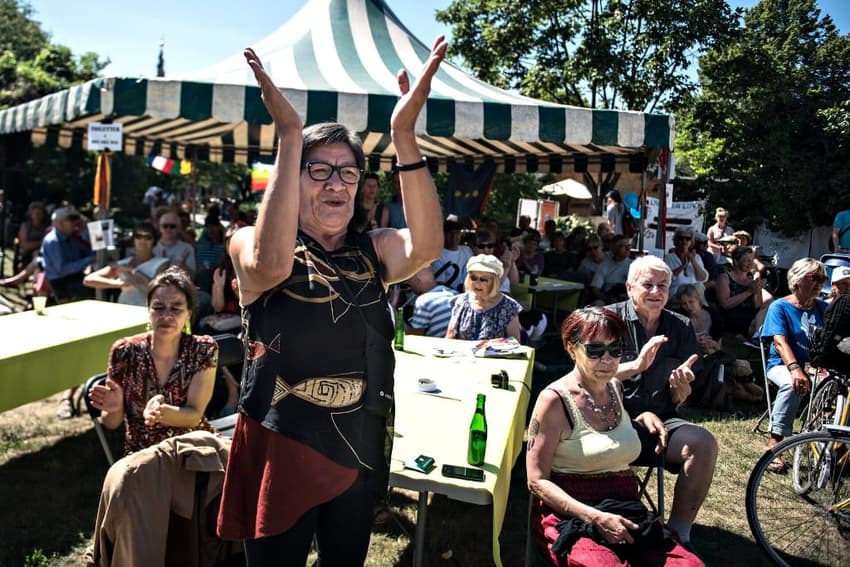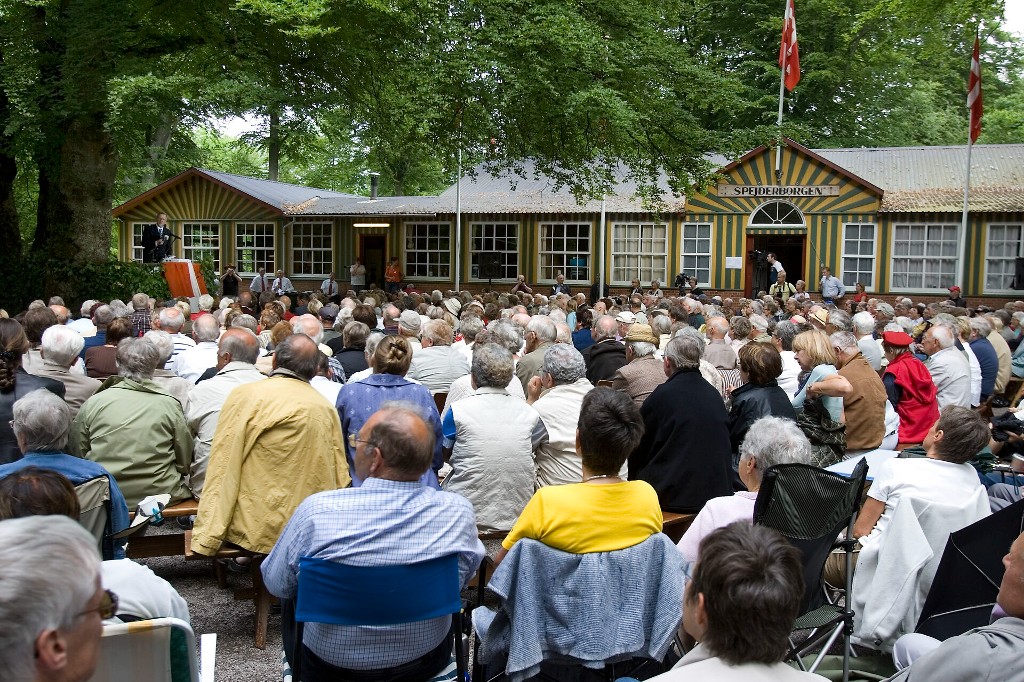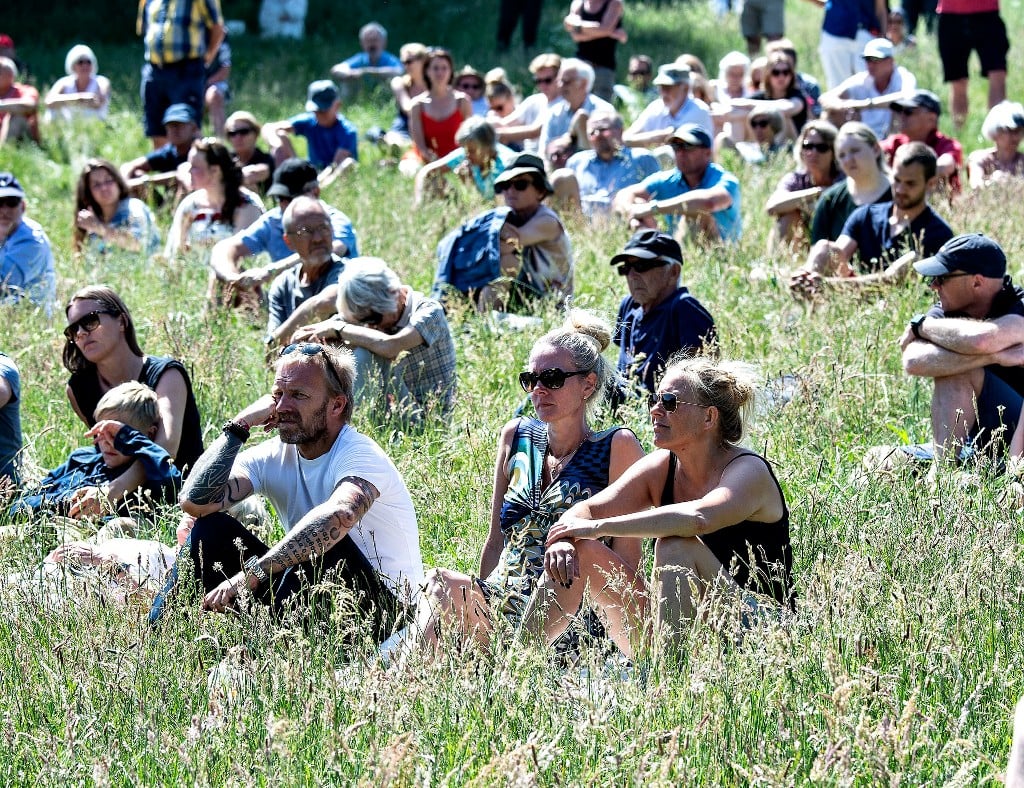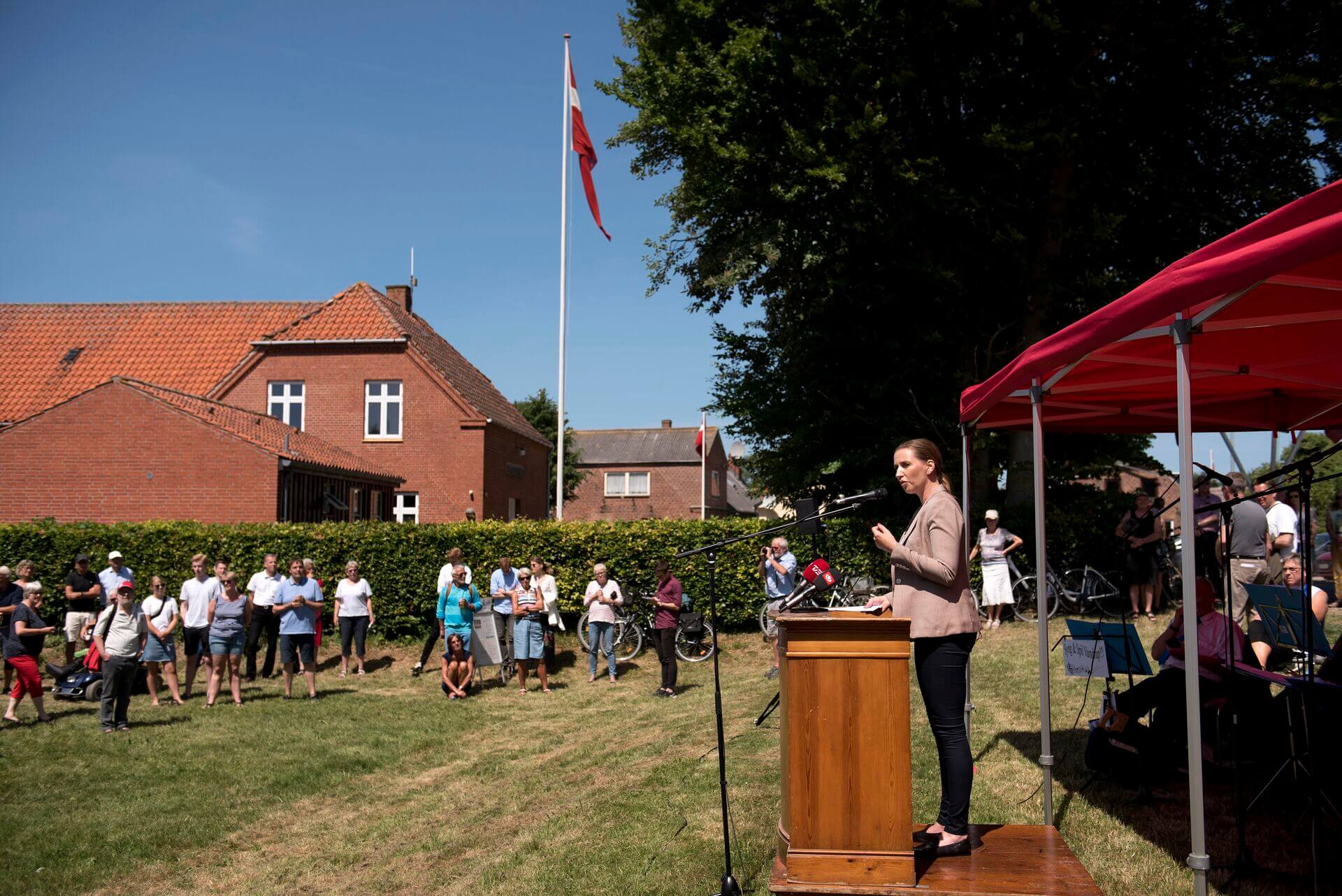How is Constitution Day celebrated in Denmark?

Denmark marks its Constitution Day on June 5th, which is the closest Denmark has to a national day. Here we explain why the day is so important and how it's celebrated.
What is Constitution Day?
Constitution Day, which is Grundlovsdag in Danish, marks the beginning of democracy in Denmark.
From 1660 until 1849 Denmark had been an absolute monarchy, (enevælden), with the King having complete power over the country.
On June 5th, 1849, King Frederik VII signed the first democratic constitution and established a constitutional monarchy in Denmark, with a representative parliamentary system.
Denmark's constitution in unique because it has never been amended, but rather rewritten every time any amendment has been brought in.
New constitutions were written in 1866, 1915, 1920 and finally in 1953, to include changes such as the elimination of the upper chamber of parliament; allowing women to inherit the throne and voting rights for women.
Why is it important?
With the constitution, Denmark became a democracy and the country is one of the oldest democracies in the world, which is something the Danes are very proud of.
Today, the constitution is regularly challenged in political debate, so the day is a reminder of the freedom and equality people in Denmark experience and the changes that have occurred in Denmark.
When Constitution Day celebrated?
Grundlovsdag is always celebrated on June 5th. This also happens to officially be Father's Day in Denmark; a tradition adopted in 1935 and a different day to other Scandinavian countries.

A traditional constitutional meeting in Terndruplund, Himmerland. Constitutional meetings have been held here since 1853. Photo: Henning Bagger/Ritzau Scanpix
Is Constitution Day a public holiday?
The day has never been a public holiday (helligdag) but is a "collective bargaining agreement determined day off" (overenskomstmæssige fridage), which means trade unions negotiate it with employers’ organisations.
This means some people have to work but many are given half a day or a full day off. From 1891 until 1975, people were given half a day off work.
Government offices, banks, the education sector and some shops close for the whole day, whereas private companies decide individually whether to give employees time off.
If grundlovsdag falls at a weekend, then most things will operate as you'd expect at a weekend.
READ ALSO: When are Denmark’s public holidays in 2023?
How is the day celebrated?
While it is the closest day to a national day of celebration for Denmark, it is not celebrated the same way as in countries such as Norway, where the day marks independence.

Archive photo of an audience listening to a constitutional speech (grundlovstale) in Aarhus. Photo: Henning Bagger/Ritzau Scanpix
As most businesses and shops are closed, many people in Denmark celebrate by attending events open-air gatherings at public parks, called udendørsarrangementer. There is often food and drink on offer (mainly hot dogs and beer) and people join in with group singing (fællessang) and perhaps light a bonfire at night.

Archive photo of Mette Frederiksen giving her constitutional speech on Aarø. Photo: Linda Kastrup/Ritzau Scanpix
Political parties will have Constitutional meetings (grundlovsmøder orgrundlovsfester) with speeches (grundlovstale), which are often more campaigning than celebrations of the Danish constitution. But there is still an element of the people's celebration (folkefest).
The biggest parties for Constitution Day are always held in the same places each year, for example Tangkrogen in Aarhus and Fælledparken or Kongens Have in Copenhagen.
READ ALSO: How many public holidays does Denmark have compared to other countries?
Comments
See Also
What is Constitution Day?
Constitution Day, which is Grundlovsdag in Danish, marks the beginning of democracy in Denmark.
From 1660 until 1849 Denmark had been an absolute monarchy, (enevælden), with the King having complete power over the country.
On June 5th, 1849, King Frederik VII signed the first democratic constitution and established a constitutional monarchy in Denmark, with a representative parliamentary system.
Denmark's constitution in unique because it has never been amended, but rather rewritten every time any amendment has been brought in.
New constitutions were written in 1866, 1915, 1920 and finally in 1953, to include changes such as the elimination of the upper chamber of parliament; allowing women to inherit the throne and voting rights for women.
Why is it important?
With the constitution, Denmark became a democracy and the country is one of the oldest democracies in the world, which is something the Danes are very proud of.
Today, the constitution is regularly challenged in political debate, so the day is a reminder of the freedom and equality people in Denmark experience and the changes that have occurred in Denmark.
When Constitution Day celebrated?
Grundlovsdag is always celebrated on June 5th. This also happens to officially be Father's Day in Denmark; a tradition adopted in 1935 and a different day to other Scandinavian countries.

A traditional constitutional meeting in Terndruplund, Himmerland. Constitutional meetings have been held here since 1853. Photo: Henning Bagger/Ritzau Scanpix
Is Constitution Day a public holiday?
The day has never been a public holiday (helligdag) but is a "collective bargaining agreement determined day off" (overenskomstmæssige fridage), which means trade unions negotiate it with employers’ organisations.
This means some people have to work but many are given half a day or a full day off. From 1891 until 1975, people were given half a day off work.
Government offices, banks, the education sector and some shops close for the whole day, whereas private companies decide individually whether to give employees time off.
If grundlovsdag falls at a weekend, then most things will operate as you'd expect at a weekend.
READ ALSO: When are Denmark’s public holidays in 2023?
How is the day celebrated?
While it is the closest day to a national day of celebration for Denmark, it is not celebrated the same way as in countries such as Norway, where the day marks independence.

As most businesses and shops are closed, many people in Denmark celebrate by attending events open-air gatherings at public parks, called udendørsarrangementer. There is often food and drink on offer (mainly hot dogs and beer) and people join in with group singing (fællessang) and perhaps light a bonfire at night.

Political parties will have Constitutional meetings (grundlovsmøder orgrundlovsfester) with speeches (grundlovstale), which are often more campaigning than celebrations of the Danish constitution. But there is still an element of the people's celebration (folkefest).
The biggest parties for Constitution Day are always held in the same places each year, for example Tangkrogen in Aarhus and Fælledparken or Kongens Have in Copenhagen.
READ ALSO: How many public holidays does Denmark have compared to other countries?
Join the conversation in our comments section below. Share your own views and experience and if you have a question or suggestion for our journalists then email us at [email protected].
Please keep comments civil, constructive and on topic – and make sure to read our terms of use before getting involved.
Please log in here to leave a comment.